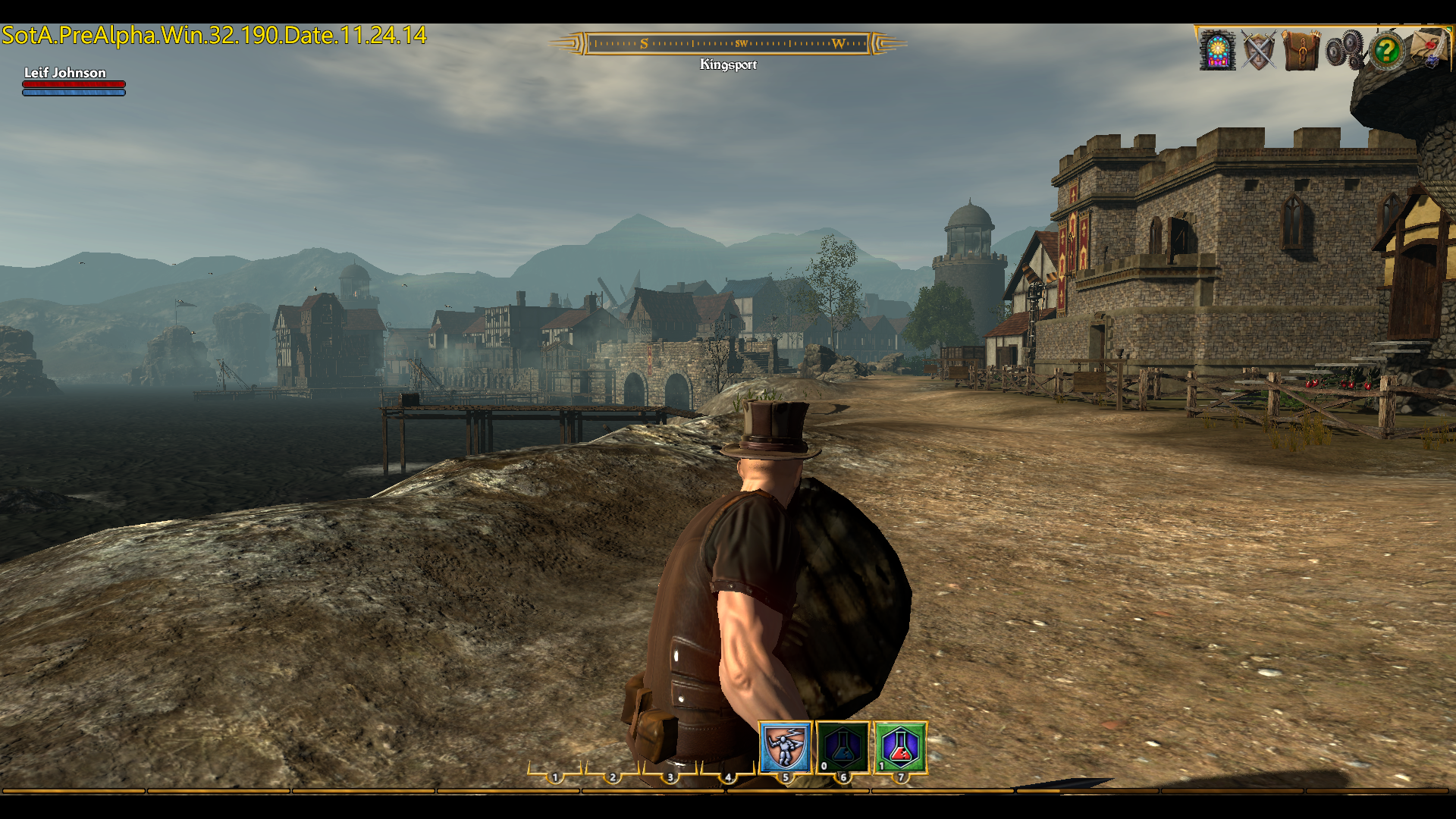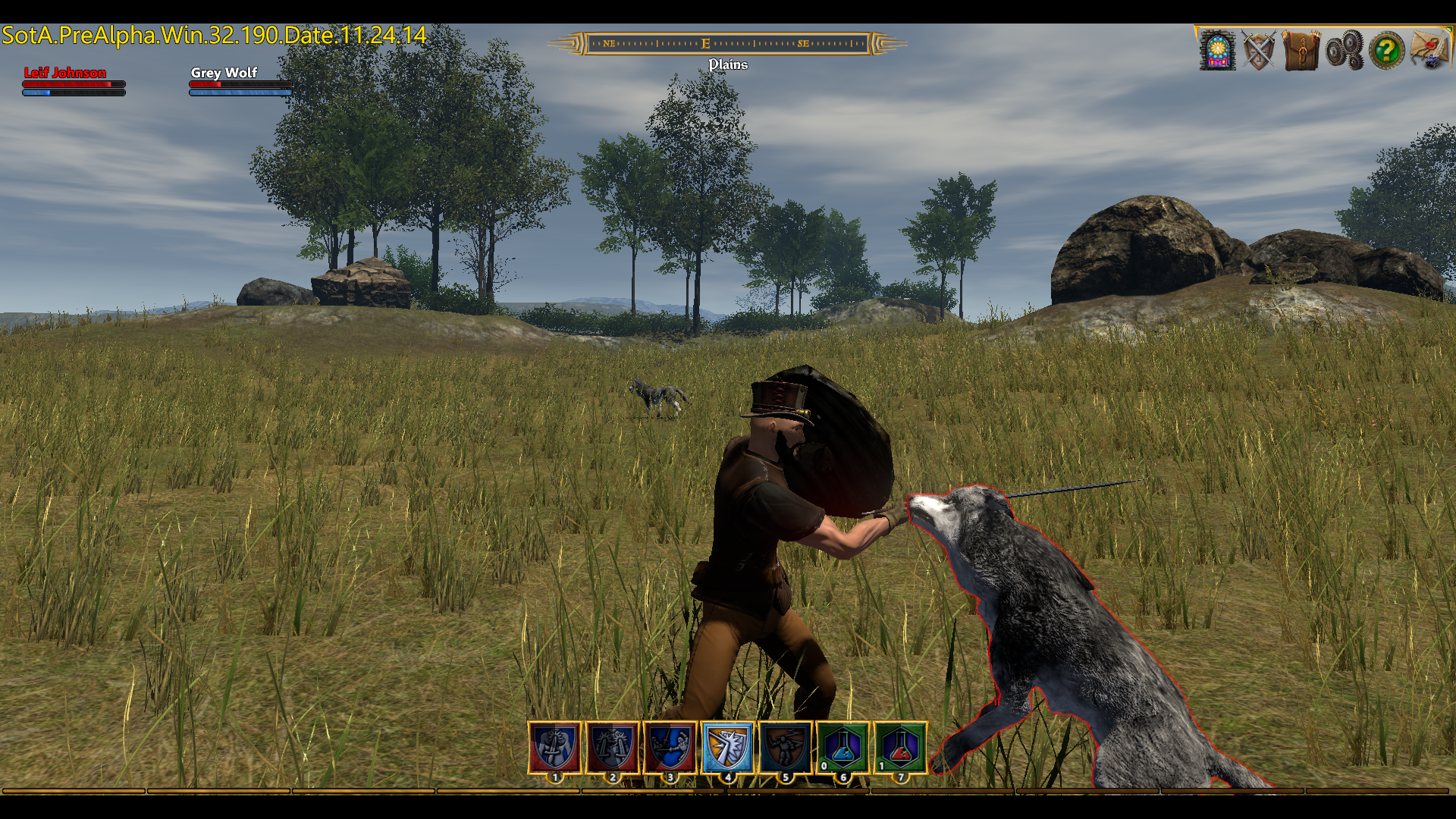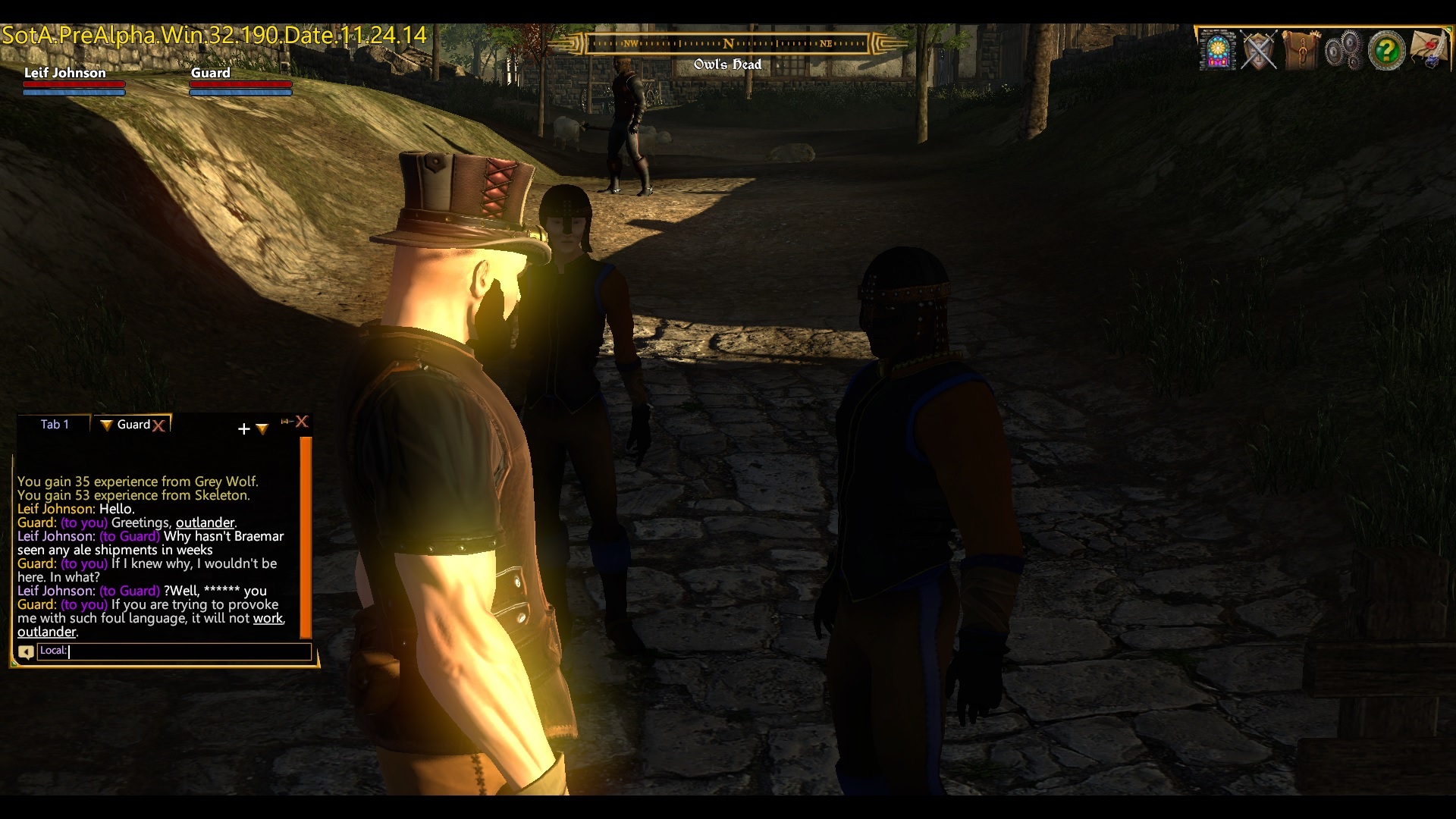Shroud of the Avatar impressions: Lord British's rough new world

Venture into some towns in Shroud of the Avatar, Richard "Lord British" Garriott's Kickstarter-funded attempt to revive the experience of the early Ultima games, and you'll find Tesla coils powering the high-voltage walls of quaint medieval villages. It's a little similar to what Garriott's trying to do with SotA: using new technology to refresh an outmoded format. Sometimes it works, more often it doesn't. As the warning that pops up when you play the Early Access version now available on Steam proclaims, it "still needs a LOT of work," but there's nevertheless the rough draft of something wonderful on display here.
It is rough, though. Combat is hilariously awful. My first battle past the brief tutorial sees me whipping out my sword and swatting at a deer with sounds that could have been someone's hand patting a flour bag. Never mind that the animations are disappointing by the standards of the last decade; that sound is the sound of madness, and it carries over to every other weapon I try. As for the deer herself? She merely bounds back and forth, letting me swat her with each pass until she plops over so I can loot her hide.
It gets better when you start encountering hostile creatures, although they're prone to standing around looking bored. (Also, in this world bears are apparently much easier to kill than wolves.) A dynamic "deck" system that switches out skills randomly on your bar helps avoid the drudgery of standard MMO rotation, but it's not explained clearly. I eventually defaulted to playing with a fixed skillbar so I'd still have some time to munch on some turkey this Thanksgiving.

What I did learn, I learned from other players. Garriott and his team bill SotA as "selectively multiplayer," which will eventually mean that you can play entirely alone, only with friends, or with other people in the manner of a traditional contemporary MMORPG. That's all in the future. The regular MMO mode's the strongest right now, although the single player and MMO modes available both benefit from the first sketch of a story penned by Tracy Hickman of Dragonlance fame. The veterans from the days before the Steam release are helpful folk, and I saw none of the hostility towards newbie questions that you find in some online worlds.
Let’s talk about quests. Shroud of the Avatar isn't one of those games with NPCs balancing big exclamation marks over their heads; here, you have to chat up the local populace to dig for information. As in, you type out questions and carry out conversations.
I love it, even if you'll come across occasional oddities like the town crier who claims he doesn't know what's going on in the area despite the fact that it's his friggin' job. My first stab at chatting brings me into contact with a sour guy named Seamus (who has dozens of similarly bald and shabbily dressed twins all across the world), and he points me toward work even after my flippant "So how can I help around here, dude?" He tells me to chat up a local guard, who in turn tells me to chat up the local brewer and hunter. All the while, I use my memory of previous encounters and the scant clues in my journal to keep the conversation going.

It's fun mainly because it lets me speak to these people as I want to, and most of their responses yield clickable words for prompts if you want to minimize the guessing games. Sometimes, however, a tiny, teensy-weensy bit of hand-holding would be nice. Said hunter tells me to go out and kill the leader of a pack of wolves up north, and so I slaughter dozens, all the while looking for a beast named "Pack Leader" or some such. I see none. In frustration, I peek at my journal and saw I'd somehow already killed the beast among the rabble. On the bright side? I went back and got a shocking boost of six levels for turning in the quest.
Keep up to date with the most important stories and the best deals, as picked by the PC Gamer team.
But this focus on charting your path carries over to everything. Characters aren't bound by classes, so you can customize them with points as you level. I learned which zones I was too weak for not by looking at level requirements sealed on the screen, but by testing my steel against the foes there. Chats with NPCs may give you an idea of which towns and zones to travel to across the world map (which you walk across like Godzilla), but you're free to head in any direction that suits your fancy. Sometimes random encounters pop up, but I never saw anything more dangerous than killing six or so wolves. Players are also free to build their own houses, though it breaks the roleplaying vibe a bit when you see rows of the same castles in little country towns.
All respect due to Mr. Garriott, but I can't help but think this is what most of us imagined Elder Scrolls Online would be like in the early days following its announcement, at least in concept. You can play alone if you wish, but you can also experience the same world with friends. Sure, its combat may be awfully rough, the framerates are jittery even with beefy graphics cards, and the environments (though lovely in spots) still look years old. But right now SotA comes closer to the reality of a "Skyrim Online" than anything I've seen in recent months.
Like Lord British says, there's a LOT of work that needs to be done here. But in a year? Perhaps two? I hope I can come back and discover that he's created the MMO I've always wanted to play.

